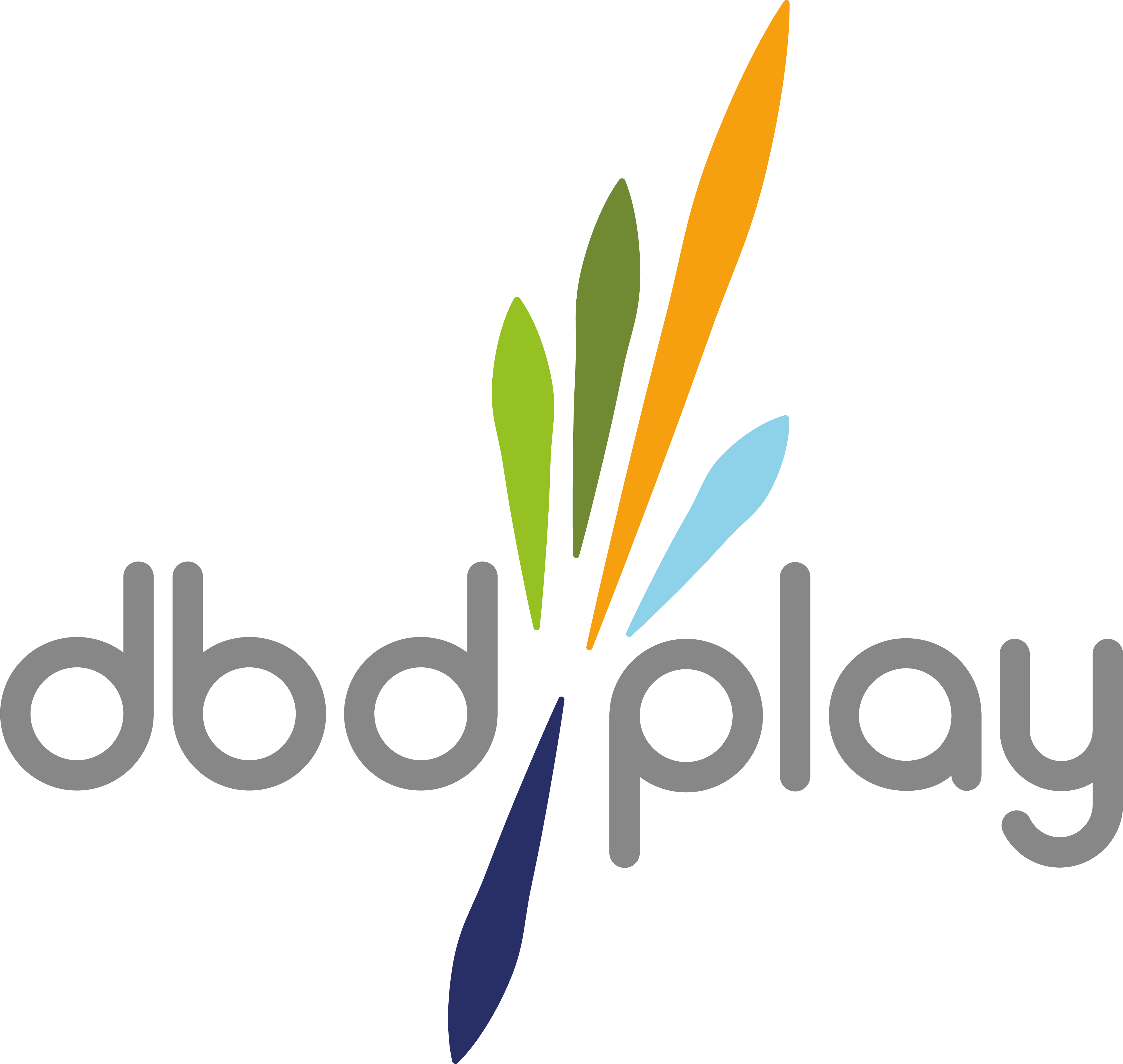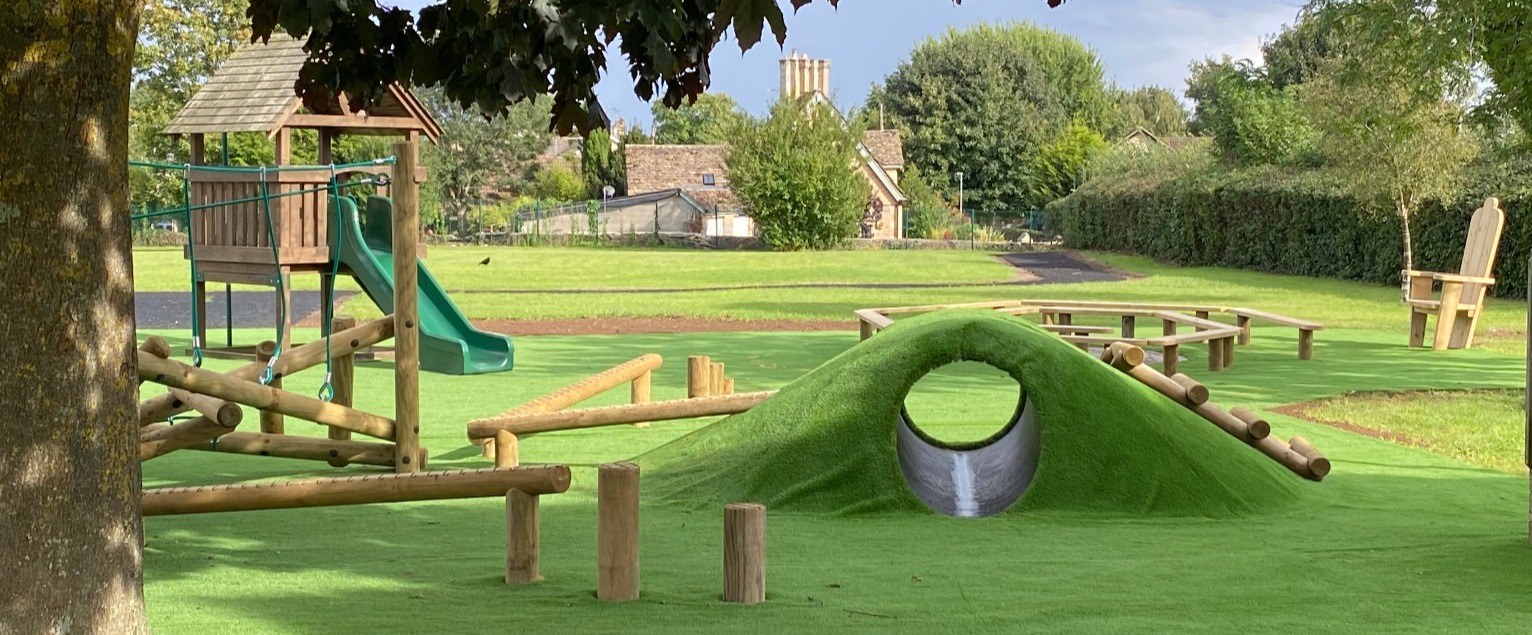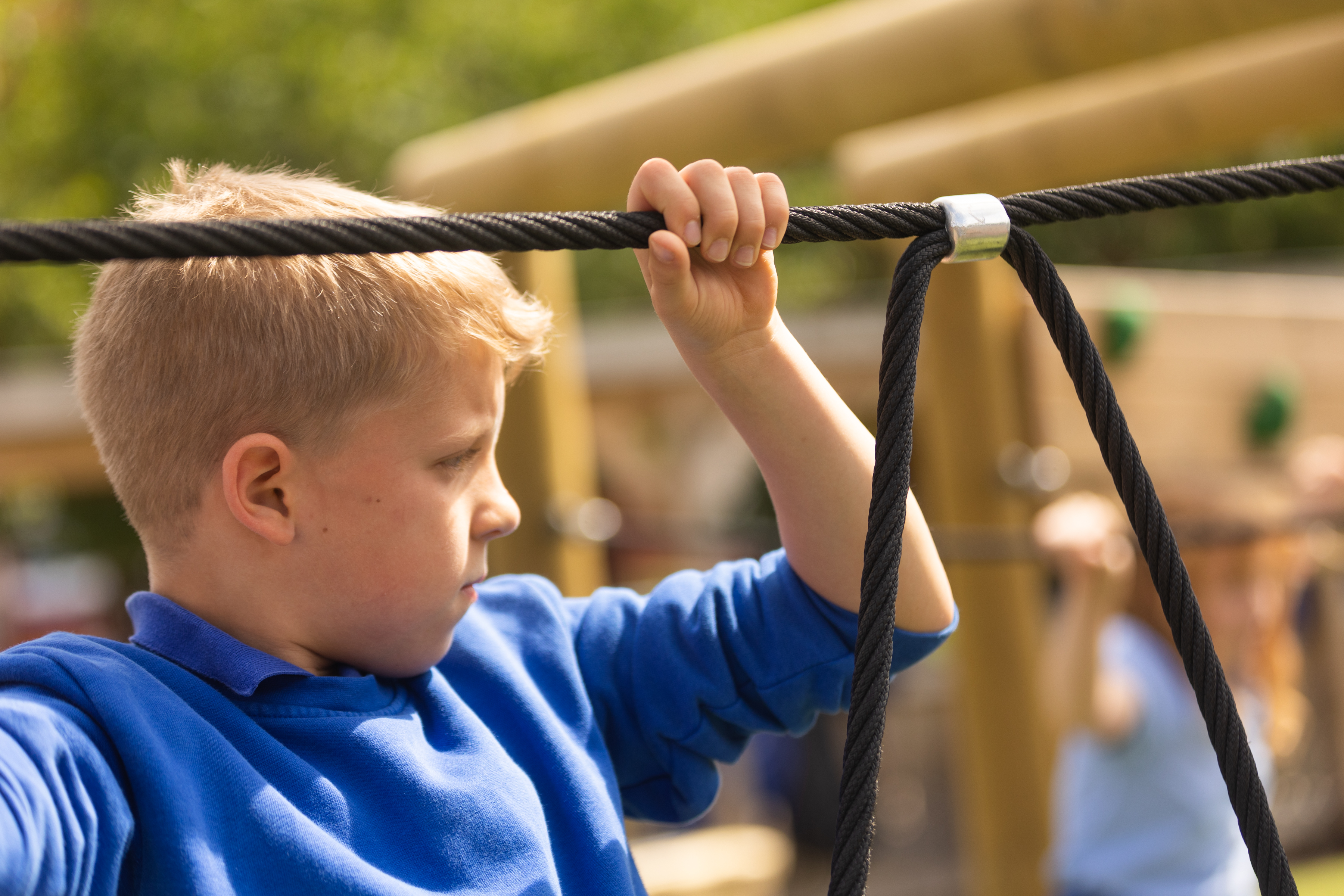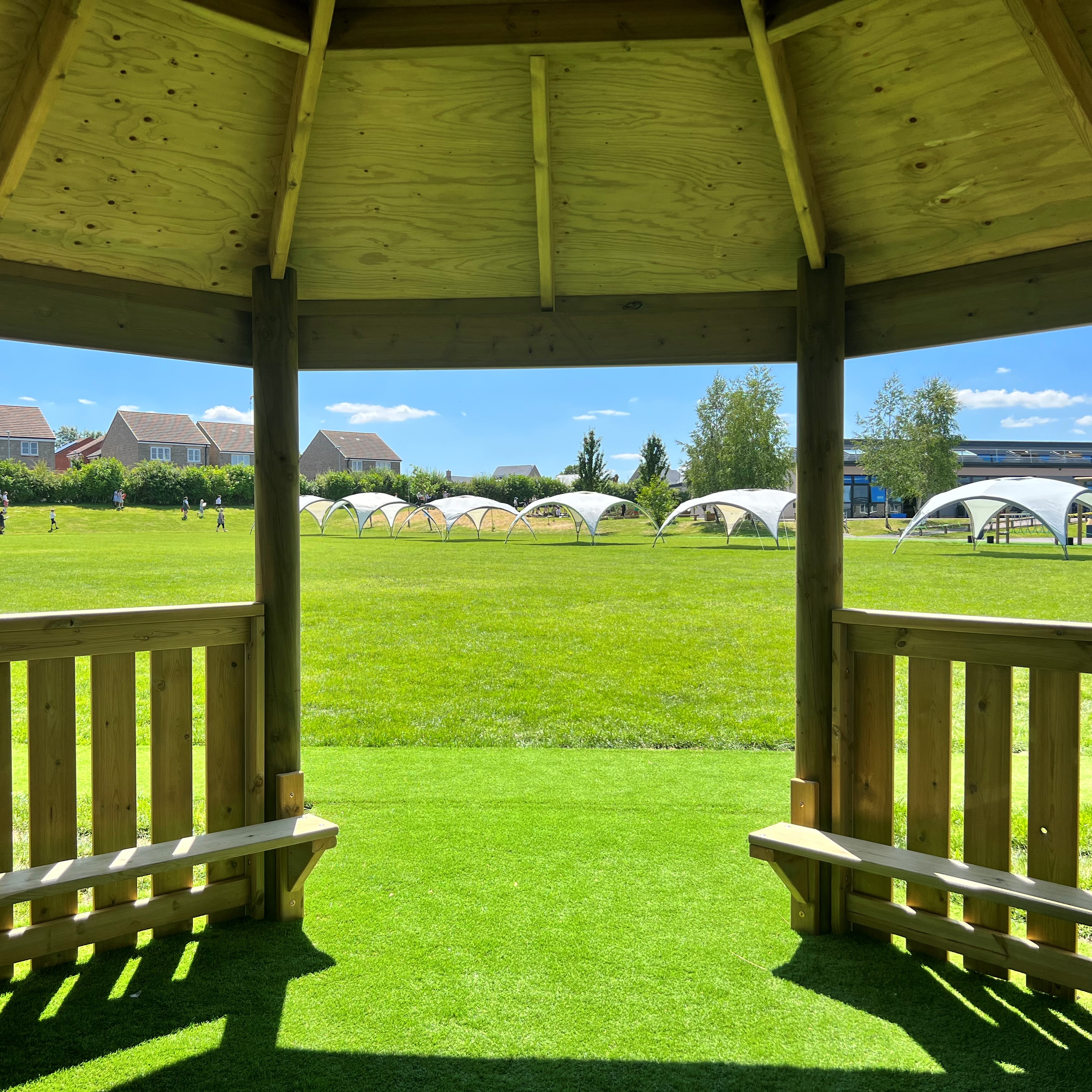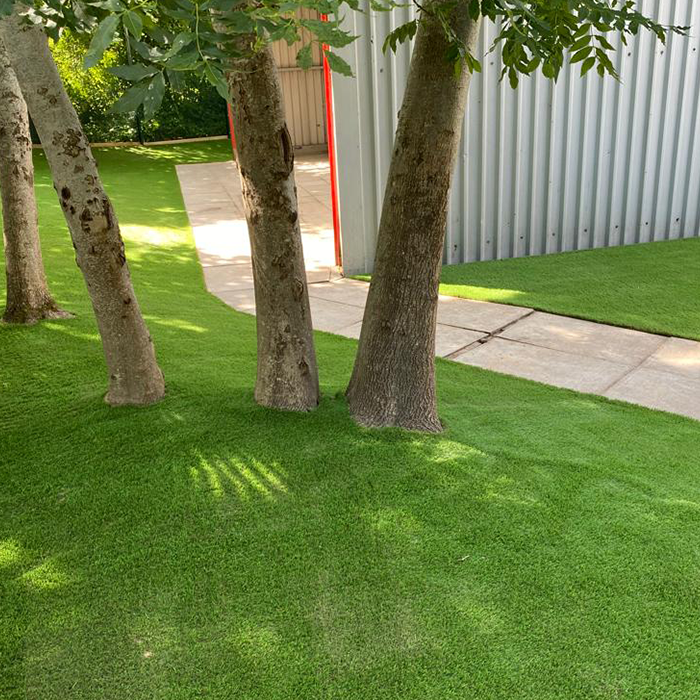The thought of raising significant funds for any project can feel pretty daunting. However, we can help. Our Fundraising Guide includes useful tips, from setting up a support group to grants available to ensure that your outdoor grounds development is a success.
Read on for more information about how to raise funds to develop your school playground.
Things to consider
Even with all the will in the world, a quality playground can be an ambitious financial undertaking for a school. Thankfully there are plenty of sources of funding available to aid you in your project, depending on which criteria your organisation fits.
Before you seek the support of these funding groups, there are a few things you can do before your application that can make the process simpler, and with a greater likelihood of being awarded a grant.
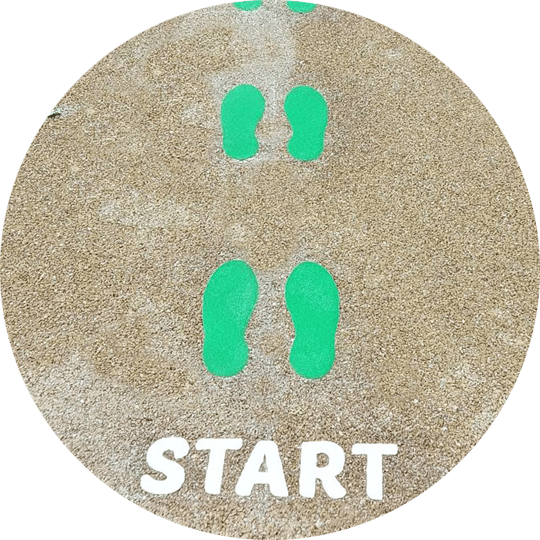
Check that you fit the grant funding criteria
In most cases, various funding groups will expect different circumstances and criteria from the cases they offer their money to. These funds may only apply to community play area projects rather than schools, or you may have to fit into a financial bracket. Some grants may only be for a local area. This may not be the case, but it is always worth double checking to see if there is a chance to receive funding.
Show funders your intentions
In order to present a persuasive case, it will be beneficial to show a clear vision of how your project will work, and who benefits from it. It’s worth taking the time to lay out a map of your intended structure and detailing the ways in which your children can use it to learn, play, and develop.
If you can get this vision across, funders will be more likely to understand your point of view and circumstances. They will need your details to determine if the project is viable and has value. You can take inspiration for this step by having a look at our previous work to see how we’ve helped others like you in the past.
Plan Carefully
Try to consider beforehand the objections or concerns funding bodies may have with your project and counter them with your own arguments. For example, could you be asking for too high a cost of equipment? Explain the reason for your choice of quality material that will last many years.
Turn your problems into solutions by turning those weaknesses into positives through clear communication and careful planning. Be sure to clarify both your budget and timescale in order to provide a full picture of your intended project. These details play a large role in determining if funding can be undertaken.
Project specification stage
It is really helpful to define what you are trying to achieve from your school grounds. Do you have an overall school grounds plan? If not, we can help you, as it is important that any playground development is part of wider holistic look at the school environment.
What issues are you hoping the playground will solve? Is the development learning or play driven (or as in most cases – both)?
Seek Advice
At dbdplay, we can advise you on the many sorts of funding that are available in your region. We can also provide guidance on the practicality of both playground equipment and playground locations. We have years of experience developing playgrounds in a variety of settings, so we can provide guidance and expertise to help you achieve your goals.
Setting up a support group
Many hands make light work! Setting up a group to help share the workload of the project and to drive it forward is a good idea. In addition, choosing people with helpful skill sets, such as practical, planning, and finance, will help ease the project’s delivery.
It is also true that involving key stakeholders in your group, such as the Head Teacher and PTA, will also ensure buy in from across the school community, as everyone feels consulted and part of the process.
We would suggest that your support group consists of at least one from the following:
- Head Teacher or Senior School Representative
- School Staff (those closest to the project e.g. KS1 or Nursery)
- PTA
- School Council
- Pupils
- Governors
Make sure your support group know what you’re trying to achieve and that they believe in it. Fundraising for a new school playground should be an exciting opportunity, so get everyone on side before you start and give them the opportunity to feed in their ideas.
Project specification stage
It is really helpful to define what you are trying to achieve from your school grounds. Do you have an overall school grounds plan? If not, we can help you, as it is important that any playground development is part of wider holistic look at the school environment.
What issues are you hoping the playground will solve? Is the development learning or play driven (or as in most cases – both)?
Fundraising in-house
We never cease to be amazed at the capacity of schools to raise funds for school projects. In many instances PTAs and School Councils are incredibly creative and engaged with their fundraising activity. Below is a selection of what we have seen, however we would love to hear of any new ideas.
Main fundraising bodies
National Lottery Community Fund
Administers National Lottery Awards for all applications.
Groundwork
A federation of charities that works to transform lives in the UK’s most disadvantaged communities.
Sport England
Offers a variety of funding for increasing participation in sports from Small Grants to the Community Asset Fund.
Easy Fundraising
Allows you to raise donations for your school when staff and parents shop.
Grants for grounds development
Ernest Cook Trust
Offers an outdoor essential grant for UK state funded primary schools to get pupils learning outdoors.
Football Foundation The Premier League, FA and Governments charity to delivering outstanding grass roots football facilities.
The Veolia Environmental Trust
Supports community and environmental projects across England through the Landfill Communities Fund.
The London Marathon Charitable Trust
Supports projects that improve facilities in London and Surrey and challenge inequality of access to physical activity.
Garfield Weston Foundation
Family founded charitable grant making foundation which supports a wide range of causes across the UK, specifically Education, Youth and Communities.
Asda Foundation
Focuses on supporting small, local activities that directly involve their customers.
Grants for community funds
Aviva Community Fund
Supports forward thinking small charities.
FCC Communities Foundation
Awards grants to community projects from funds donated by FCC Environmental through the Landfill Communities Fund.
The Peoples Health Trust
For local groups and organisations to make their communities an even better place.
Biffa Award
Gives grants to community projects near landfill sites.
Special educational needs focus
Wooden Spoon
Rugby charity funding projects to support children and young people with disabilities across the UK.
Greggs Foundation
Provides grants to improve the quality of life in local communities prioritising people with disabilities.
St. James’s Place Charitable Foundation
Gives grants to Special Needs Schools in the UK.
Foyle Foundation
Gives grants for Special Education Needs projects.
Top-tips for the application
- Use Plain English and be clear about your objectives and outcomes.
- Use Active not PASSIVE language:
- Active
- The playground will extend our classroom into the outdoors.
- We expect the playground to increase pupil activity levels
- Passive:
- The playground aims to extend our classroom into the outdoors.
- We hope the playground will increase pupil activity levels
- Active
- Be careful with acronyms EYFS, KS1 – the grant provider may not be familiar or understand them.
- Make it easy to read. Make your key points stand out with bullet points or bold text.

Good luck!
We look forward to helping you deliver your school grounds development
Originally published Mar 22, 2021 11:24:36 AM , updated January 30, 2024
